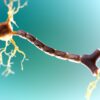A commonly used treatment known as responsive neurostimulation to treat drug-resistant epilepsy in adults may also be effective for pediatric patients, new research finds.
“Patients with childhood-onset drug-resistant epilepsy treated with responsive neurostimulation system (RNS) were retrospectively identified at 5 pediatric centers,” according to the study’s authors.
“Reduction of disabling seizures and complications were evaluated for children and young adults and compared with prior literature pertaining to adult patients.”
As highlighted in Neurosurgery, 35 children and young adults were assessed, all of which had a prior diagnosis of drug-resistant epilepsy. Treatment with RNS was found to have been associated with significant reductions in seizures.
The findings showed that 84 percent of participants saw a decrease in seizures, with 18 percent reporting a reduction of over 90 percent.
“These preliminary data suggest that RNS is well tolerated and an effective off-label surgical treatment of drug-resistant epilepsy in carefully selected pediatric patients as young as 3 yr of age.”
“Data regarding long-term efficacy and safety in children will be critical to optimize patient selection,” the authors determined.


